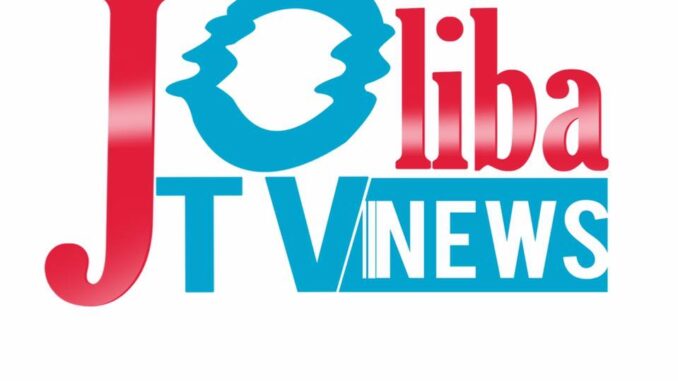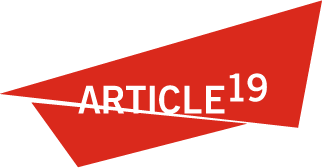
ARTICLE 19 is deeply alarmed by the decision of Mali’s High Authority for Communication (HAC) to suspend the broadcasting licence of a private television channel Joliba TV, effective from 26 November 2024. This punitive action follows a complaint filed by Burkina Faso’s Higher Council for Communication (CSC) on 12 November, accusing Joliba TV of airing remarks critical of Burkinabè authorities during an episode of a weekly programme ‘Le rendez-vous des idées’.
The complaint was triggered by comments made by Issa Kaou N’Djim, a Malian politician, in an episode which aired on 10 November. N’Djim reportedly criticised Burkina Faso’s handling of a coup attempt, describing it as a ‘poorly staged performance’ and accusing Burkinabè authorities of attempting to ‘distract attention from critical issues’. Following the comments, N‘Djim was detained on 13 November under charges of ‘public insult against a foreign head of state’. His trial is scheduled for 23 December 2024.
This is not the first time Joliba TV has faced a ban – in 2022, the HAC suspended the channel for 2 months for “defamatory statements and unfounded accusations”. The suspension ended after 1 month.
Alfred Nkuru Bulakali, Regional Director, ARTICLE 19 West Africa, commented:
“The regulatory authority of Mali should revoke the decision to withdraw the licence of Joliba TV. Suspending the licence and holding the channel responsible for a critical statement made by a guest during a live broadcast, is a disproportionate sanction which sets a dangerous precedent for media freedom. With this sanction, the High Authority of Communication is sending a chilling message to the media and the public, which can lead to self-censorship and the silencing of critical voices.
“A free and independent press is crucial for the functioning of the rule of law, and the civic education, participatory governance and social cohesion. Lifting of the ban would help to create dialogue with the media, preserve freedom of expression and the right to information, and would reinforce Mali’s commitment to the international standards on freedom of expression and freedom of press which are also safeguarded in the Malian culture and laws”.
The Malian Constitution explicitly guarantees freedom of expression and freedom of the press in Article 14 and Article 15 respectively. Those rights are further underscored in the Declaration of Principles on Freedom of Expression and Access to Information in Africa, and the Windhoek+30 Declaration. Both declarations emphasise the imperative to safeguard media independence and stipulate that any sanctions on media operations must adhere to strict standards of legality, necessity, and proportionality. Moreover, the United Nations Human Rights Committee’s General Comment No. 34 asserts that the right to freedom of expression encompasses political discourse, commentary on public affairs, advocacy for human rights, journalism, as well as expression that may offend or disturb certain audiences.
ARTICLE 19 calls on the HAC to reconsider its decision to suspend Joliba TV and to ensure that all regulatory measures align with Mali’s international human rights obligations. We also call on the Malian authorities to take necessary measures to uphold press freedom and create an enabling environment for pluralistic and independent journalism in compliance with their international obligations, including the accepted recommendations of the fourth cycle of the Universal Periodic Review (UPR) in 2023 and applicable norms of the African Commission on Human and People’s Rights ( ACHPR), of which Mali is active member.
On Monday 26 November, a commission set by the Maison de la Presse met HAC officers to advocate for the lifting of the suspension. ARTICLE 19 welcomes this initiative and calls for a rapid collaborative resolution which would enable Joliba TV to continue their activities. We also call for continuous consultative measures to protect the media and safeguard the crucial role it plays in keeping the public informed on matters of public interest.
Context
Since August 2020, Mali has been ruled by the military, following a coup in which the colonel Assimi Goita assumed the role of the head of state. The coup, a fifth since the country’s independence, coupled with the security crisis which has been deepening since 2012, has had a disastrous effect on the respect of human rights and democratic values in the country. The ongoing crisis has been marked by numerous threats to the safety of journalists and media freedom, as journalists have been targeted or kidnapped by the armed groups.
At the same time, public authorities have introduced severe measures affecting the media’s freedom to report on security issues and other relevant topics – including closures and suspensions of some international media outlets. On 24 August 2024, the HAC suspended the French channel La Chaîne Info for two months, citing allegations of defamation and incitement to terrorism, related to a program about the Wagner Group’s activities in Mali, which aired on 27 July. In January 2024, TV channel France 2 was suspended for 4 months. In 2022, the authorities suspended France 24 and RFI over accusations of spreading ‘false news’ in their reporting on alleged human rights violations by Malian armed forces and militias.
For further information, please contact us:
ARTICLE 19 Senegal/West Africa
Maateuw Mbaye, Civic Space and Protection Officer E: maateuw.mbaye@article19.org; Mob: + 221785958337
Office line: +221338690322 E: Senegal.westafrica@article19.org
